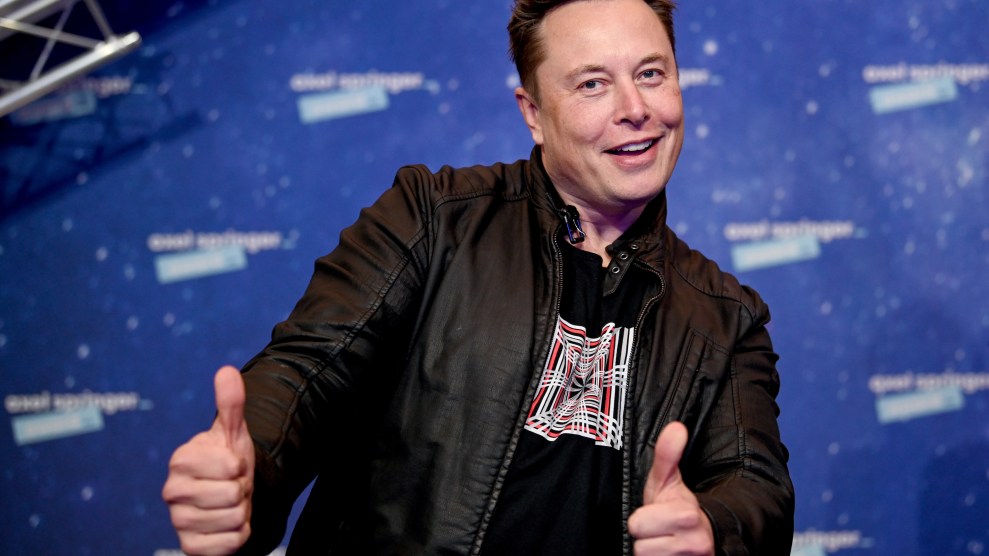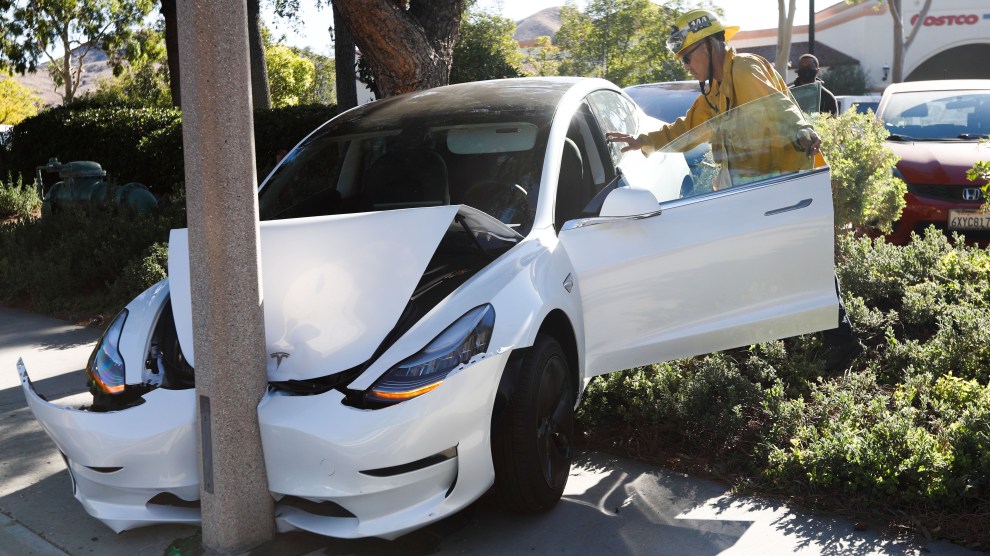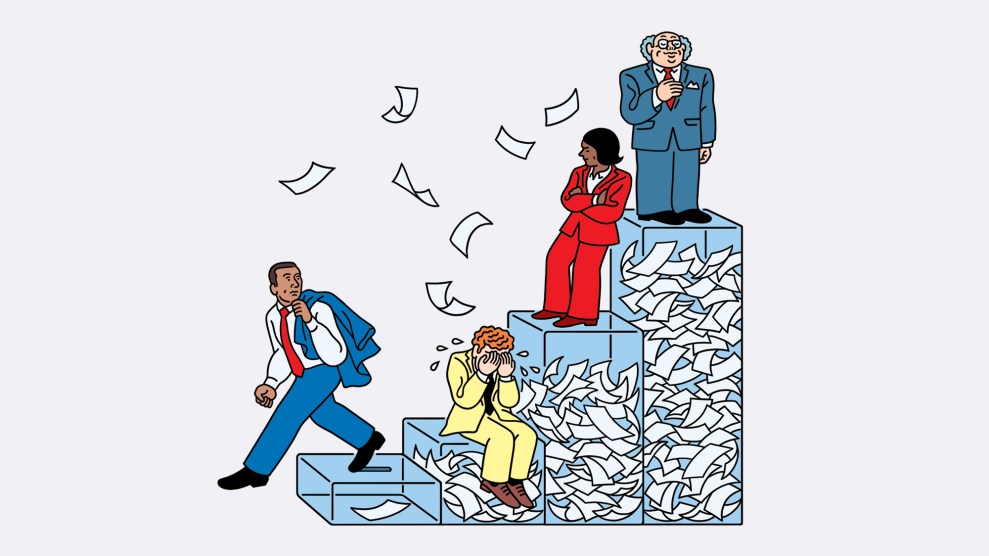
Yay!Britta Pedersen/DDP/Zuma
Tesla just realized that testing “self-driving” vehicle technology on public roads isn’t such a good idea, after all.
Today, the automaker recalled nearly 363,000 cars equipped with its “Full Self-Driving” technology after a report by the National Highway Traffic Safety Administration found that the Autosteer feature “led to an unreasonable risk to motor vehicle safety based on insufficient adherence to traffic safety laws,” the Associated Press reports.
According to NHTSA, it sounds like FSD is bad at many of the crucial elements of driving, such as stopping, turning, and changing speeds:
The FSD Beta system may allow the vehicle to act unsafe around intersections, such as traveling straight through an intersection while in a turn-only lane, entering a stop sign-controlled intersection without coming to a complete stop, or proceeding into an intersection during a steady yellow traffic signal without due caution. In addition, the system may respond insufficiently to changes in posted speed limits or not adequately account for the driver’s adjustment of the vehicle’s speed to exceed posted speed limits.
As I’ve written previously, FSD has been linked to multiple deaths. While Elon Musk has claimed that the software operates “better than a person,” Tesla’s website clarifies that the vehicles are not fully autonomous.
Tesla says it will remedy the issue with a free software update.
The recall announcement comes one day after Tesla reportedly fired at least 18 employees at a Buffalo, New York, warehouse that had announced its intent to unionize. The Workers United union has filed a complaint with the National Labor Relations Board, saying it believes workers were illegally fired “in retaliation for union activity.”
Also on Wednesday, President Biden praised Elon Musk (on the Musk-owned Twitter.com, no less) for opening up part of Tesla’s charging network to drivers of other electric cars.
Tesla has benefited from Biden’s Inflation Reduction Act, which offers tax credits for electric vehicles made in North America. But for all of its support from the US government, Tesla’s disregard of workers’ rights and road safety has landed it in hot water with numerous government agencies (NHTSA, OSHA, NLRB) that are too slow-moving and ineffectual to get it to change its ways.
As the US embarks on its transition to electric cars and clean energy, it’s worth asking how we’ll ensure that the workers bringing about that change are protected.
















